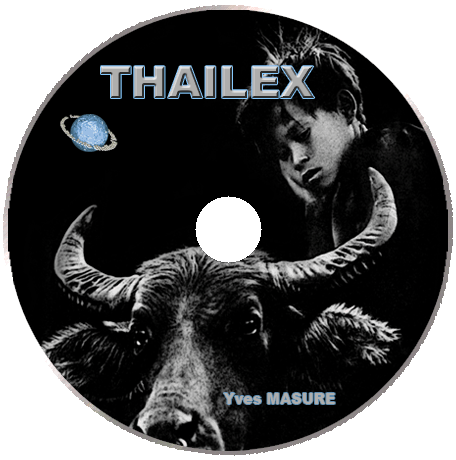|
|
Welcome to THAILEX! The name ‘Thailex’ combines ‘Thai’ — meaning ‘Free’, a word that reflects both the nation itself and its very essence as the ‘Land of the Free’ — with ‘lex’, from ‘lexicon’, the Latin for ‘dictionary’. This dual significance underscores my commitment to providing a resource on Thailand that is freely accessible to all, while fostering a spirit of curiosity, exploration, and learning. Confucius once said that ‘it is better to travel one mile than to read a thousand books’ and the Persian polymath Al-Razi, who travelled extensively himself, similarly believed that ‘all that is written in a book is worth less than the experience of one’. Aurelius Augustine compared the world to a book and said that ‘those who do not travel, read only one page’, whilst Socrates assumed that ‘the unexamined life is not worth living’. Others however, say that ‘by reading, one can travel without moving an inch’ and Seneca claimed that ‘free time without reading or writing is the death and grave of a living man’.Thus , in line with the principle of the Buddhist middle path, perhaps a combination of the two, i.e. traveling ánd reading, might be more suitable in order to achieve a better understanding of the path we are traveling ón. Southeast Asia reflects a captivating blend of the ancient and the modern, and is nothing short of an open-air museum stored with astonishing wonders —a magnificent school where one can absorb intriguing cultures in an empiric and peripatetic way. Yet, in order to gain some insight, it is essential to be inquisitive and question the things one encounters, thus making profound research inexorable.With the aim to store my findings and enable me to visit them again, I have recorded the results of such a research. Thus, with near-scholarly, in-depth study done in multiple languages, including Thai, Burmese, Khmer, Lao, Sanskrit and Chinese, and by using both primary and secondary sources, along with a comparative study of parallel materials, I created this travel encyclopedia, which I hope will help shed some light on the sometimes obscure and enigmatic cultural aspects of a society much shrouded in myth and legend. Never has it been my intention to pretend that this work is scientific, as it is not. The nature of it is far more like the findings of an inquisitive child, amazed about the beauty or novelty of things it comes across in its living environment, and the pleasure and need to share those, sometimes out of sheer joy, alacrity, awe or naivety, like a child finding shells along a beach. It has been commented in the press, that Thailex ‘is the result of curiosity on the part of the author’, and indeed it is, since besides the craving for knowledge it is the marveling at the findings that compelled me to record them, as for me impression without expression would equal suppression.Although comprehensive, a work of this nature and magnitude can never be complete. My intention has been to collect pieces of noteworthy information with the purpose to learn, enjoy, and then pass these findings on, like a ‘torch of knowledge’ ̶ to gather without to actually possess. To many topics in this work an entire book could be devoted. My aim however, has not been to elaborate in detail, but to highlight some notable facts and put the reader on the right track for further research. Therefore, rather than serving merely as a source of information, I hope Thailex will ignite curiosity and inspire independent exploration — for, as the saying goes, ‘only dead fish float with the current’.I trust you will take as much pleasure in browsing this lexicon as I did in creating it, and I warmly invite you to join me on this journey of discovery, deepening your appreciation of the Thai language and the vibrant culture and heritage of Thailand . 回
|
|


